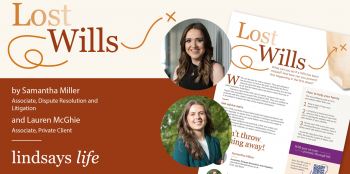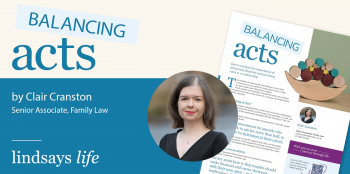The British media love divorce cases – they often provide intriguing glimpses into the lives (and finances) of the rich or famous. However, for the Scottish aficionado of marriage breakdown stories, there’s a health warning: since matrimonial law in Scotland is different to that in England and Wales, never assume that anything you read about an English divorce case or law change will apply north of the border.
One recent media topic is a proposal to introduce ‘no fault’ divorce in England and Wales. Currently, a would-be divorcer must show the marriage has broken down irretrievably, because of one party’s adultery, unreasonable behaviour or desertion, or because the partners have lived apart for two years (five years if one doesn’t agree to the divorce). The proposed change would remove the need to use these grounds.
However, in Scotland, the grounds for divorce are different – the separation periods are one year if both partners agree to divorce, or two years if they don’t.
The difference is not just a small matter of numbers. With shorter separation times allowed, 95% of divorces in Scotland are granted on these “no fault” grounds, whereas in England and Wales 53% of divorces initiated by men and 68% initiated by women are on the grounds of adultery or unreasonable behaviour. The law in Scotland opens the way for divorce to be a less accusatory process.
Another difference in Scotland is that financial settlements between spouses must be concluded before the divorce, whereas the grant of divorce in England may precede the financial settlement. Media stories of spouses returning to court post-divorce to renegotiate a financial settlement may not be possible in Scotland.
There are two morals to take from this. The first is to be wary of what you read in the press, but you no doubt knew that already.
The second is more specific to divorce. The Scottish system of divorce, where the financial negotiations precede the divorce settlement and where it is easier to divorce without attributing blame, is often a more constructive process for those involved.
Clearly, there are still emotions and stress involved in divorce in Scotland, but there is less legal emphasis on fault-finding and more focus on future arrangements – not so much a post-mortem of things done wrong as a blueprint for moving on. A good adviser will help create this more constructive mindset.
If you would like any further information or advice please contact a member of our Family Law team.








